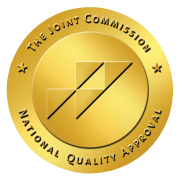10 Bipolar Disorder Triggers And How To Manage Them
Bipolar disorder is a mood disorder where people experience mania (extreme highs) and depression (extreme lows). These episodes are often random or may be triggered by specific events. However, understanding your bipolar disorder triggers can help manage or prevent an episode. This is crucial in understanding how to navigate your day-to-day.
What Triggers A Bipolar Episode?
Bipolar disorder generally develops due to a combination of genetic and environmental factors. Although the genetic aspect of bipolar disorder is not fully understood, having a parent with this disorder increases the likelihood of also struggling with bipolar disorder. This is where the genetics come to play.
If you are struggling with bipolar disorder, it is vital to understand the personal factors that can trigger an episode. Thes factors could simply be due to genetic factors, your personality, the potential trauma you have experienced, and many other possibilities. Though triggers vary from person to person, we will explore the most common triggers of bipolar disorder. This is important when learning how to live with a bipolar disorder.
1. Sleep Issues
Sleep issues are not only a symptom of bipolar disorder but also a trigger. If you work long hours or you’re a student functioning on little sleep, you risk triggering a bipolar episode. Sleep disturbances such as traveling between time zones may contribute to these sleep issues as well.
2. Positive Events
While most bipolar disorder triggers revolve around a negative event, meeting goals and positive events can also be triggers of bipolar disorder. Winning an event, getting a promotion, or starting a new relationship can all trigger a manic episode.
This is why it is so important to remember that we are managing our disorder. The moment we believe it is “completely taken care of” is when we can become quite vulnerable. But with help, management can become second nature.
3. Substance Abuse
Using drugs and alcohol does not cause bipolar disorder. However, they are significant triggers of a bipolar episode. Drugs and alcohol can also “awaken ” bipolar disorder that beforehand was dormant. Even though both drugs and alcohol are bipolar disorder triggers, one in five people with bipolar disorder has a co-occurring substance use disorder.
4. Life-Changing Event
One of the most significant life changes we will face is the death of a loved one. Although you may be able to manage your bipolar episodes while mourning, death can also be a trigger of bipolar disorder.
If you are going through a life-changing event while also managing bipolar disorder, eliciting the help of friends and family may provide extra support and monitoring during difficult times.
5. Stress
Stress is perhaps the number one trigger of bipolar disorder. Not only can childhood stress lead to developing bipolar disorder, but stress can also trigger an episode. Managing stress is often easier said than done. It is crucial to work with a therapist to learn ways to cope with and manage your stress levels.
6. Trauma
Childhood trauma is a leading factor in the development of bipolar disorder. This trauma may include physical or sexual abuse, neglect, or the loss of a parent. While the trauma may have happened during childhood, symptoms of the trauma may not be apparent until another traumatic event occurs in adulthood.

7. Changes In Seasons
The changes in seasons are triggers for almost 20 percent of people with bipolar disorder. Seasonal changes are often experienced as mania during the spring and summer, and depressive episodes or seasonal depression in the winter and fall.
8. Changing Or Missing Medications
The majority of those who experience bipolar disorder rely on medication for symptom management and stabilization. This is important in keeping depressive and manic episodes under control and preventing a relapse. However, finding the proper medication can be tricky.
For instance, antidepressants may actually trigger bipolar disorder. To mitigate this trigger, they must be taken with a mood stabilizer or avoided altogether. Always consult with your doctor before changing or stopping medications to avoid unwanted side effects or bipolar episodes.
9. Arguments With Friends, Family, Or Coworkers
When your bipolar disorder goes untreated, it often leads to broken relationships. The irritability you experience during manic and depressive episodes can increase arguments with friends, loved ones, and even co-workers.
These arguments increase stress which is one of the triggers of bipolar disorder. In fact, A study in the Journal of Affective Disorders found that negative social experiences often trigger suicidal thoughts in those struggling with bipolar disorder triggers.
10. Having A Baby
Bipolar disorder is strongly associated with postpartum psychosis. As a result, 67 percent of women with bipolar disorder will experience episodes weeks and months after birth. New moms commonly experience changes in their sleep, hormones, and medication each of which are common triggers of bipolar disorder.
How Can You Manage These Bipolar Disorder Triggers?
It is impossible to avoid your bipolar disorder triggers. However, learning how to manage these triggers is key to controlling this disorder. Just like with triggers of bipolar disorder, managing personal triggers may be different from others.
Minimizing your stress levels is the best way to prevent and manage bipolar episodes. Some ways to reduce stress include:
- Avoid drugs and alcohol
- Get more sleep
- Create boundaries
- Manage your time
- Eat a balanced diet
- Exercise
- Spend time with friends and family
- Yoga
- Mindfulness and meditation
Regularly attending therapy is very beneficial in helping you manage your bipolar disorder triggers. Some people also use medications along with therapy. However, you should never self-medicate as this can worsen your bipolar disorder.
Why Is a Stable Routine And Environment Important For Bipolar Disorder Triggers?
If you struggle with bipolar disorder, it is important have a stable environment and regular routine. People suffering from Bipolar Disorder are often sensitive to disruptions in routine.
The most important way to manage bipolar disorder triggers is having a set sleep schedule. This means going to bed at the same time each night and waking up at the same time each morning. A set sleep schedule helps keep the brain regulated and minimizes your reactions to bipolar disorder triggers.
Lido Wellness Center Can Help You Manage Triggers Of Bipolar Disorder
If you or a loved one is struggling with managing bipolar disorder or other mental health issues, we can help. Lido Wellness Center in Newport Beach, California, offers integrative and comprehensive holistic care. A happy and fulfilled life is possible. Contact us today to find out how.




